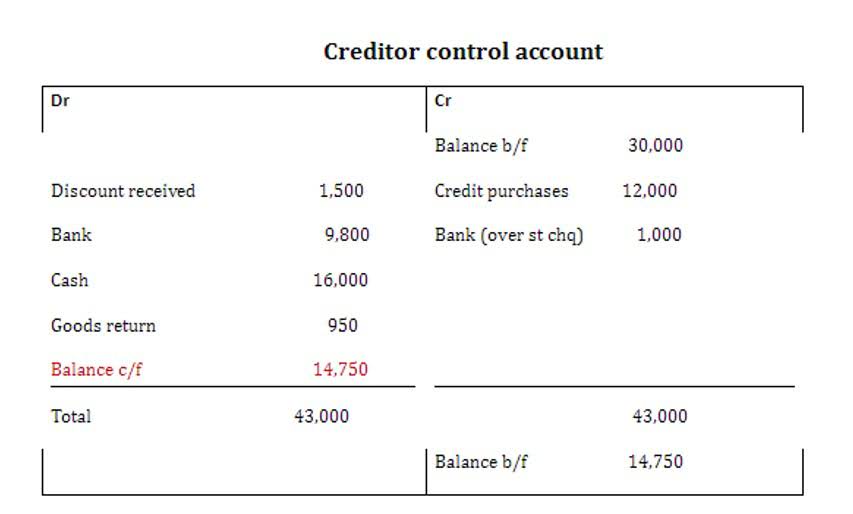
By using automated accounting tools, businesses can have more freedom and accuracy in managing their financial records. Building strategic partnerships Certified Bookkeeper with other businesses complements the services of a virtual accounting firm. For example, partnering with IT service providers can enhance a firm’s technology offerings, benefiting clients seeking comprehensive solutions.

Check data security measures
- They can be a great entry point for small businesses to evaluate and adapt these services into their operations without immediate financial commitment.
- The key is to find a balance between proximity and the caliber of services offered.
- So, if you’re just getting started and looking to get your books in order from the get-go, Pilot is a great place to begin without having to worry about cleanup of your books down the line.
- Establish preferred communication channels, whether email, phone, or video conferencing, early on.
- Avoid insecure email and a cluttered inbox by using the built-in secure chat-style messaging system for easy communication.
- Ignite Spot Accounting delivers heftier reports than many other cloud accounting providers we checked out for this piece.
Using a secure file-sharing portal like Liscio makes it easy to gather the documents you need. And a workflow app like Pixie, developed specifically for small accounting firms, can tie everything together and keep you organized. According to recent statistics, QuickBooks Online has over 4.5 million users worldwide, making it a preferred choice for virtual accounting professionals. When it comes to automating your accounts payable and receivable processes, Bill is one of the best bookkeeping tools you can reach for. An intuitive accounting platform, FreshBooks allows virtual bookkeepers to complete accounting tasks across a wide range of devices from anywhere in the world. Data security can be maintained through encrypted communication channels and two-factor authentication.
Can An Accountant Work Remotely?
Becoming a successful virtual bookkeeper is far from straightforward as, after all, it’s a competitive and complex industry. Nonetheless, the path to success is more than achievable if you know which route to take. And it all starts by equipping yourself with the best bookkeeping tools we’ve covered in this article. With these tools mastered, you will discover that complicated tasks is easier than you ever imagined.
Managing Remote Workers

The top two accounting software programs for small businesses are Xero and QuickBooks Online. Both have a multitude of integrations to support the accounting department. We prefer Xero for almost any situation, except large inventories of 4000+ units. AI accounting tools encompass algorithms that enable machines to perform tasks that typically require human intelligence, such as decision-making and pattern recognition. “GoToMeeting is a web-hosted platform that aids in conducting online meetings.
- You can buy an unlimited number of licenses, which is great for larger accounting firms.
- Your process should follow best practices, use specified apps, and include what your client can expect to receive in financial reports, and the schedule, be it weekly or monthly.
- Asana is effective for tracking project progress with a focus on collaboration.
- Regular one-on-one check-ins with team members provide opportunities for feedback and support.
- Cloud software will usually encrypt files while they are resting or in transit.
- For most virtual businesses, it’s not only the customers who are in a different location but also the employees.

Satisfied customers have reported that using Plooto has reduced their AP and AR processes from 5 hours to as short as 10 minutes per week, and has saved over 40 hours a month. With Plooto in your toolbox, managing accounts payable and accounts receivables will no longer be a hassle as the virtual accountant software will make your process more efficient, streamlined, and profitable. Patriot PayrollPatriot Payroll streamlines the processes of managing payroll payments and tax submissions. The software provides tools to maintain payroll records, print checks, establish direct deposits, generate payroll reports and submit state and federal taxes. Going virtual may open the door to new possibilities for you, but it also opens the door to competitors.
This is the main reason unearned revenue why international employees are usually contract labor in the U.S. While Zoho is a subscription based service, it is not your run of the mill CRM. Virtual accountants can speak with clients via phone, email, live chat, and social.
- This process allows for continuous improvement, ensuring that the selected accounting tools align with your evolving business needs.
- Becoming a successful virtual bookkeeper is far from straightforward as, after all, it’s a competitive and complex industry.
- This model allows them to provide flexible, cost-effective services while leveraging the latest accounting software.
- Data security can be maintained through encrypted communication channels and two-factor authentication.
- Setting up your remote accountants with cloud based accounting software, will enhance productivity.
- Take a look at the accounting processes that you are performing, and want to automate.
These tasks include managing financial transactions, preparing and updating financial statements and financial reports, conducting audits, and offering strategic tax advice. Virtual accountants often handle the nuances of payroll calculation, invoice management, and balance sheet harmonization. Their role is pivotal in budgeting and forecasting, thereby aiding businesses in strategic planning and growth. Documenting the integration of accounting tools into your virtual accounting processes is essential for transparency and knowledge retention.

When you engage with a virtual bookkeeping service, the first step is to provide access. Generally, accountants need access to your accounting platform, bank and credit card reports, and other tools such as bill pay or expense management platforms. The bookkeeping team will then enter and categorize your transactions, reconcile accounts, generate financial statements, and provide ongoing support remotely.